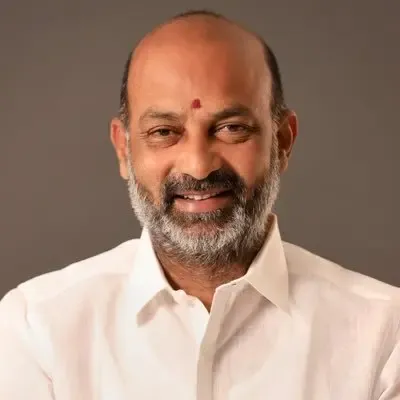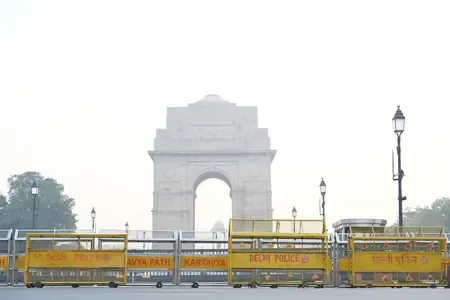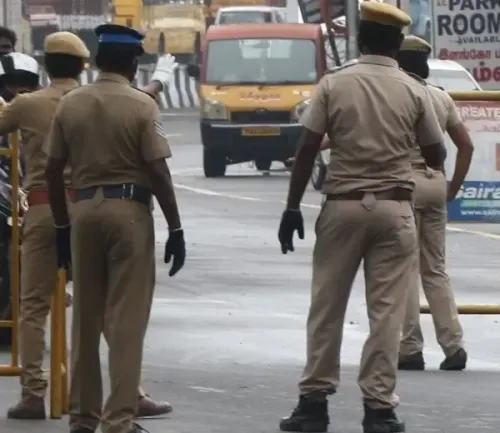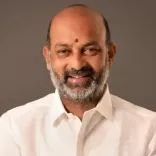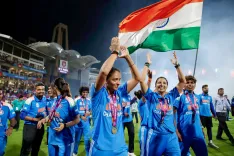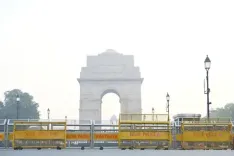Congress Faces a Dilemma in Delhi: How Far to Challenge AAP?
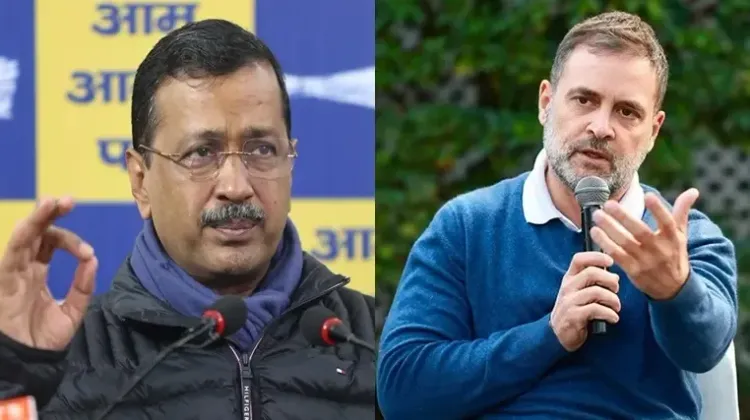
New Delhi, Jan 12 (NationPress) With the BJP and AAP's intense campaigning for the February 5 Delhi Assembly election taking the spotlight, the Congress party appears to have lost its momentum, seemingly holding back when it should be charging ahead. This is particularly curious as this election offers a prime opportunity for the historical party to stage a comeback in the capital.
The Congress has been nearly erased from Delhi's political landscape, having failed to secure any seats in the last two Assembly elections and the Lok Sabha elections.
This time, however, there is a considerable opening for the Congress party as the AAP has been mired in corruption allegations, with its leadership currently out on bail after various arrests. The AAP's five-year tenure starting from 2020 has been fraught with controversies and accusations of stagnation. The political landscape in the national capital has been marked by significant drama, leaving residents bewildered regarding AAP's aims, trustworthiness, and feasibility. This scenario presents a golden opportunity for the Congress party to encroach upon AAP's territory and reclaim its lost ground. For both parties, the BJP remains the common adversary.
Although the Congress has finally enlisted Rahul Gandhi to kick off its campaign with a rally in Seelampur, followed by Priyanka Gandhi Vadra and party chief Mallikarjun Kharge, the initial enthusiasm exhibited by local leaders has notably diminished. The momentum appears to have waned after Arvind Kejriwal's AAP responded strongly.
The situation escalated when senior leader Ajay Maken launched a direct assault on Kejriwal while unveiling a White Paper detailing the “misdeeds” of both the AAP and the BJP-led Central government. He announced intentions to disclose alleged 'anti-national' associations involving the AAP leader and labeled Kejriwal as 'Farziwal'. Although a press conference was initially scheduled, it was postponed under the pretext of requiring more documents. Ultimately, the press conference was canceled and may not occur at all.
The reason behind this change is that AAP flagged Maken's controversial comments. AAP issued a warning to the Congress regarding Maken's “anti-national” remarks about Kejriwal, demanding action against him or threatening to approach allies in the INDIA bloc to consider expelling the Congress from the opposition coalition. AAP was also displeased with Congress lodging a complaint against Kejriwal, accusing him of “misleading and deceiving” the public with promises of “non-existent” welfare initiatives.
It appears that backchannel discussions within the INDIA bloc favored Kejriwal, persuading the Congress leadership to refrain from intensifying its criticisms of him. Many of Congress's allies in the opposition bloc rallied around Kejriwal, leading the Congress to restrain its veteran leader Maken.
Maken, who had been spearheading the party's campaign in Delhi, has gone silent. An unexpected twist occurred when the Karnataka Deputy Chief Minister introduced the 'Pyari Didi Yojana', a scheme pledging Rs 2,500 in monthly assistance to women in Delhi if the party gains power. This raises questions about why such an announcement was made by the Karnataka Deputy Chief Minister rather than the party's top brass, including Priyanka Gandhi, highlighting the prevailing confusion within the party.
By appearing weak against the AAP, the Congress party seems to have forfeited its fight. It has left the struggle to be waged by individual leaders at the grassroots level. It may or may not achieve significant numbers in the Assembly elections. Even if it manages to secure a few seats, the party will celebrate as it has been scoring zero in the last two Assembly elections.
The competition between the AAP and the Congress primarily revolves around the minority Muslim demographics and the marginalized communities, particularly the Dalits. Muslim voters account for approximately 12 percent of Delhi's population, while Dalits represent around 17 percent of the electorate. Both groups were once reliable vote banks for the Congress, which lost their support after 2013. This could explain why Rahul Gandhi is launching his campaign from Seelampur, an area with a substantial Muslim population.
The Congress may or may not secure a seat or multiple seats in the Delhi Assembly; however, it has undeniably revealed its vulnerabilities within the INDIA bloc before its allies—both national and regional. Its lack of proactiveness could further tarnish its reputation, especially that of Rahul Gandhi. The grand old party has a crucial chance to fortify its position in the national capital, where it has experienced a drastic decline in vote share compared to AAP's rapid ascent. The Congress's vote share in Delhi has significantly decreased over the years, from 40.31 percent in 2008 to 24.55 percent in 2013, 9.7 percent in 2015, and a mere 4.26 percent in 2020.
Since the establishment of Delhi's Legislative Assembly in 1993, the BJP assumed power following Congress's three consecutive terms from 1998 to 2013. Subsequently, AAP has been in control. With anti-incumbency sentiment and a multitude of cases against ruling AAP leaders, the Congress has a favorable environment to enhance its standing in Delhi's electoral contest.
Nevertheless, with AAP asserting its dominance and allies in the INDIA bloc siding with Kejriwal, the Congress finds itself in a quandary regarding how aggressively to confront its ally AAP. If this indecision continues, the scales may tip unfavorably for the Congress.
(Deepika Bhan can be contacted at deepika.b@ians.in)


